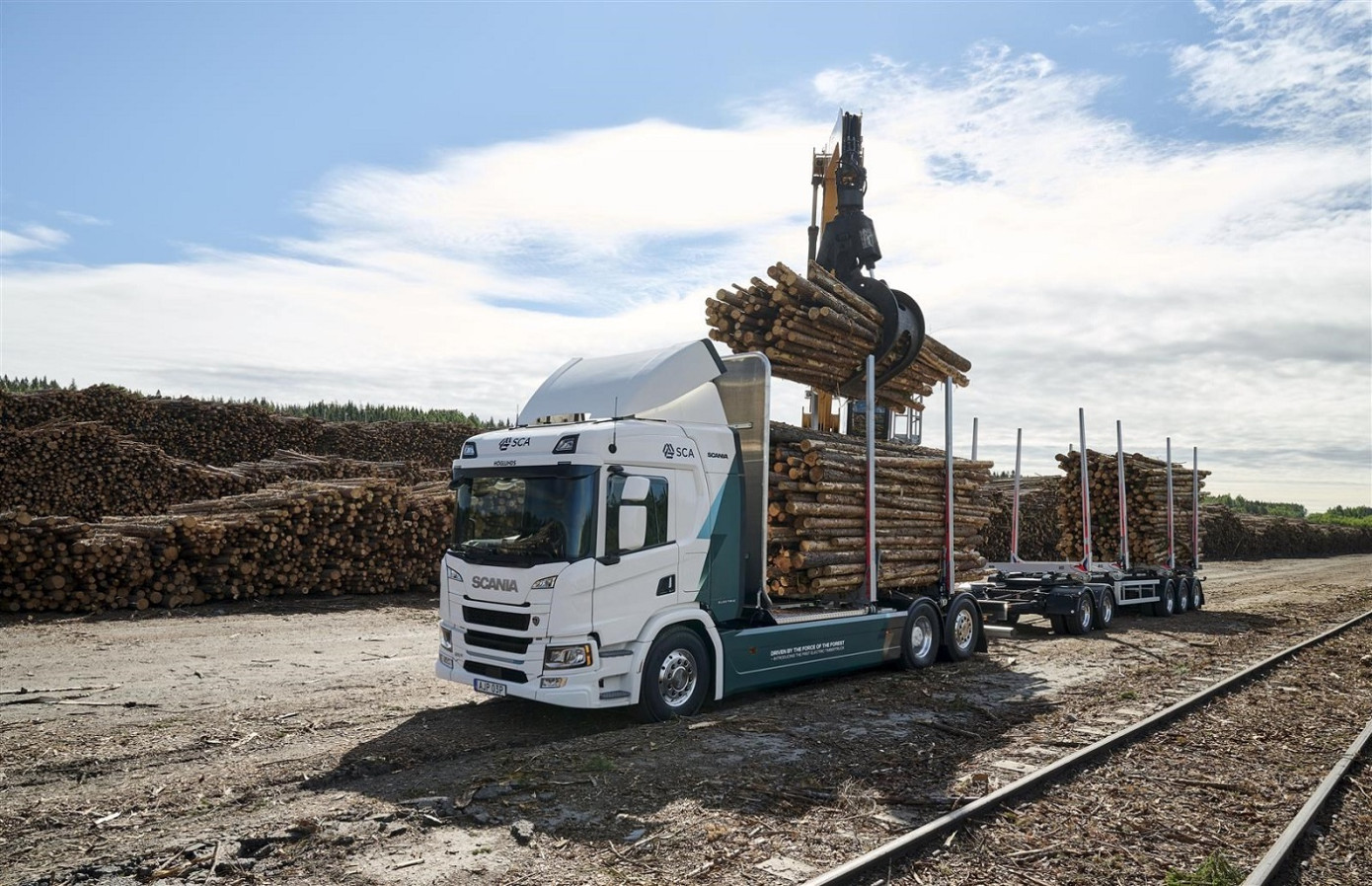The world's first electric timber truck with a capacity of 80 tonnes has now been delivered to SCA. The vehicle solution developed by Scania in close collaboration with SCA and the research institute Skogforsk, is part of the transition to sustainable transport.
"The 80-tonne battery-powered timber truck shows that even really heavy transport can be electrified. The partnership with SCA, is a early show of what is possible, is a clear signal that it is possible to electrify even heavy transport. A change of pace is needed to make Sweden fossil-free in time and meet the goal of the Paris Agreement," says Fredrik Allard, Head of E-mobility at Scania.
The intention is that the vehicle will transport timber on the stretch between SCA’s timber terminal in Gimonäs and the paper mill in Obbola outside Umeå. The new electric timber truck represents another innovative step on the journey towards a fossil-free society and can be driven with a total weight of 64 tonnes on public roads and 80 tonnes on private roads.
SCA Obbola's paper mill currently has a virtually fossil-free production process and the intention of the new vehicle is to reduce the fossil elements in the transport chain of raw material to the mill.
The electric timber truck will be test-driven during the summer and continuously studied by the research institute Skogforsk to collect relevant data that can form the basis for comparisons with conventional diesel-powered timber transports.
After that, the plan is for it to be included in SCA's regular operations.
The studies carried out during the summer will, among other things, compare energy consumption, productivity and costs against existing vehicles and map out what would be required for a broad implementation of electric timber trucks across the country.
